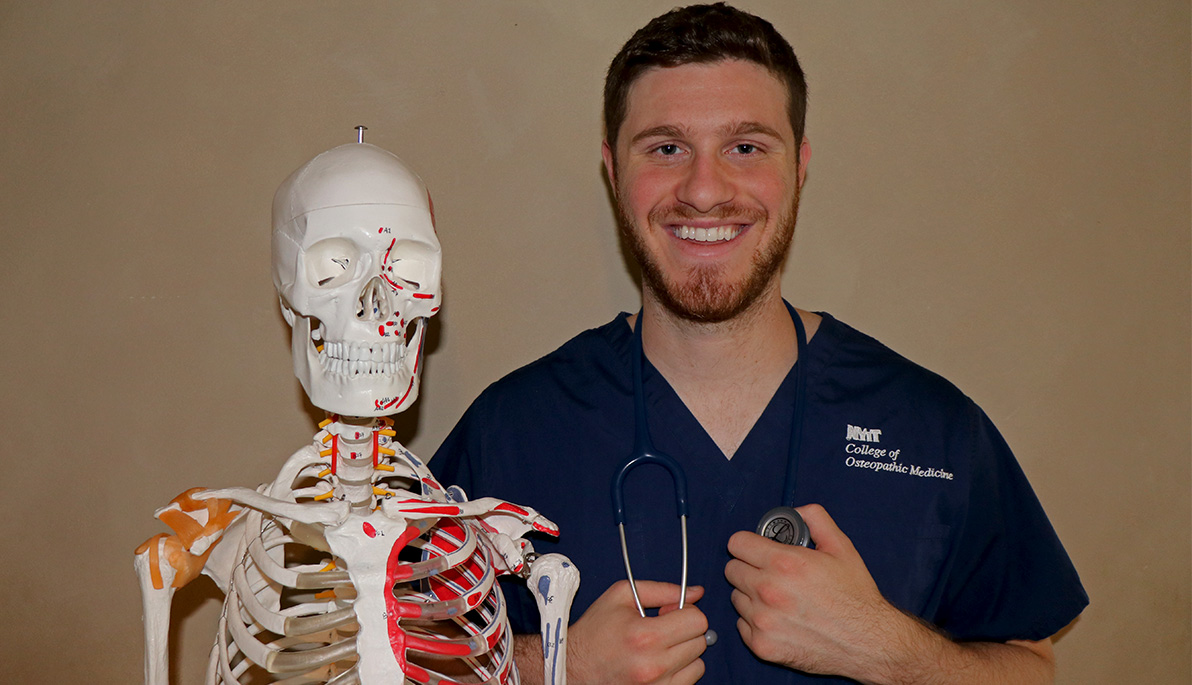News
Bull’s-eye! NYITCOM Student Targets Cancer Treatment
October 2, 2019
While some medical students took a summer break from their research, NYIT College of Osteopathic Medicine (NYITCOM) student Connor Abramowicz spent his summer researching cancer treatments at the birthplace of DNA’s double helix: Cold Spring Harbor Laboratory in Cold Spring Harbor, N.Y.
Growing up on Long Island’s north shore, Abramowicz’s family would often visit Cold Spring Harbor Laboratory’s science expositions. So when his application to be part of an investigation at the historic research lab was accepted, he took full advantage of the opportunity. Abramowicz joined the research lab of Jason Sheltzer, Ph.D., who studies aneuploid tumors, tumors with cells containing the wrong number of chromosomes.
“Dr. Sheltzer wanted the perspective of a medical student, as most of the people in the lab came from a research background. I was extremely lucky to be offered a position at such a prestigious institution,” he said.
In their study published in Science Translational Medicine, the researchers wanted to understand why the failure rate is so high to determine how future therapies, namely targeted cancer therapies, could be more effective.
When a new drug is tested in a clinical trial for a particular type of cancer, 97 percent of the time that new drug does not make it to market. However, the reasons why so many of these drugs fail is not well understood.
They discovered, in the case of targeted cancer therapies, that these treatments may not be hitting their intended targets. Unlike other cancer treatments like chemotherapy, targeted therapies, which are used to treat many common cancers such as breast cancer, are meant to be aimed at the particular genes, proteins, or tissues that cancer cells need to grow and thrive.
The researchers used CRISPR-Cas9 mutagenesis, the gold standard of genome editing tools, to see whether ten different targeted treatments were working as intended. They found that the drugs were not effective because they were missing the mark and targeting proteins not essential for cancer cell proliferation—a phenomenon known as off-target toxicity.
Their work suggests that one of the reasons why some targeted treatments may fail in clinical trials is because the drugs are not designed properly. The researchers believe their study will spur more investigations into why so many cancer drugs are ineffective, with the hope that their work will pave the way for better treatments. The research was especially inspiring for Abramowicz, who hopes to one day become an oncologist.
“Cancer treatment is an extremely important topic in modern medicine because it’s one of the few diseases that we’re still trying to treat effectively,” he said. “Knowing what each cancer medication does in terms of its mechanism of action is important in producing a well-rounded medication profile.”


_Thumb.jpg)


